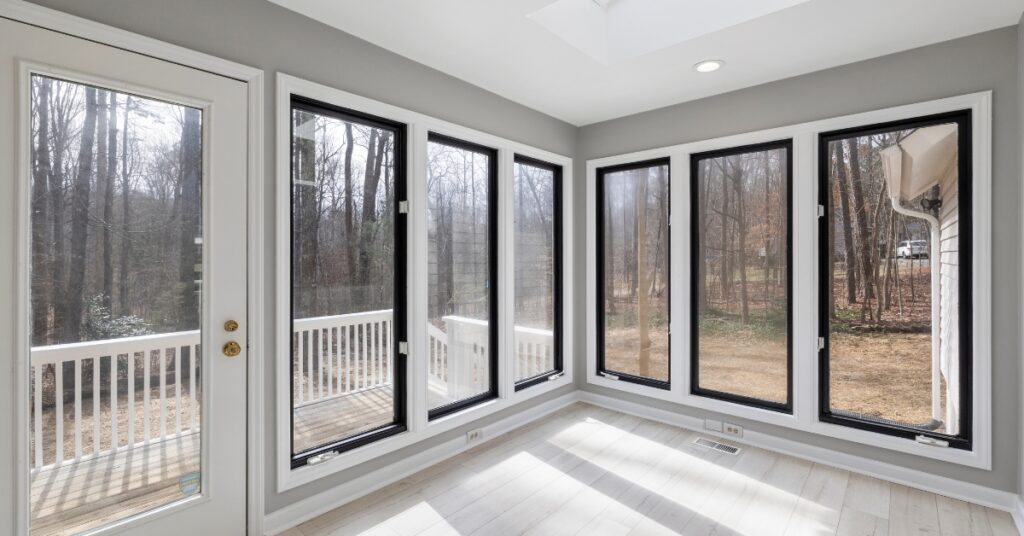Efficiency, safety, and productivity—these are the cornerstones of modern commercial facilities. And at the heart of these operations lies an often-overlooked hero: the commercial garage door opener. Whether you’re running a distribution center, automotive service station, or warehouse, the right opener ensures smooth access control, secure storage, and operational consistency.
In this guide, we’ll break down the essentials of choosing, installing, and maintaining a commercial garage door opener and how the right choice can impact your daily operations.
What Is a Commercial Garage Door Opener?
A commercial garage door opener is a heavy-duty motorized system designed to raise and lower industrial or commercial garage doors with precision and power. Unlike residential openers, these are built for higher frequency usage, larger door sizes, and more complex safety requirements.
They’re commonly installed in:
- Warehouses
- Fire departments
- Automotive workshops
- Logistics centers
- Manufacturing facilities
Types of Commercial Garage Door Openers
The opener you choose depends on the size, weight, and type of your commercial door. Here are the most common types:
| Opener Type | Best For | Description |
|---|---|---|
| Trolley Operator | Standard lift sectional doors | Mounted on ceiling; used for doors that open along a track. |
| Jackshaft Operator | High-lift or vertical lift doors | Mounted on the wall beside the door; great for spaces with overhead obstructions. |
| Hoist Operator | Large or heavy rolling doors | Includes a chain hoist for manual use in emergencies. |
| Slide Door Operator | Horizontal sliding doors | Used where side-to-side movement is required. |
| Fire Door Operator | Fire-rated rolling steel doors | Automatically closes the door in fire emergency situations. |
Key Features to Look for in a Commercial Garage Door Opener
Choosing an opener isn’t just about lifting a door. It’s about safety, automation, and efficiency. Here are the critical features to prioritize:
1. Heavy-Duty Motor
Look for an opener with a continuous-duty motor (typically 1/2 to 1 horsepower) designed to handle frequent operation without overheating.
2. Advanced Safety Mechanisms
Includes auto-reverse sensors, photo-eyes, and emergency disconnects to prevent injuries and comply with OSHA and UL 325 safety standards.
3. Smart Controls
Modern openers offer wireless control, smartphone access, and integration with facility security systems. Remote diagnostics and alerts are also valuable.
4. Backup Power
Battery backup ensures the door functions during power outages—a must-have for emergency service facilities or businesses with continuous operations.
5. Durability and Weather Resistance
If your door faces outdoor exposure, your opener must withstand extreme temperatures, dust, and moisture.
Benefits of Installing a High-Quality Commercial Garage Door Opener
- Improved Operational Efficiency: Automated openers reduce loading/unloading time, directly boosting productivity.
- Security: Keypad access, rolling codes, and alarm integration prevent unauthorized access.
- Safety: Modern systems reduce the risk of accidents, keeping both employees and inventory safe.
- Reduced Maintenance: High-end openers are engineered for long life with minimal intervention.
- Lower Energy Costs: Paired with insulated doors, openers that close quickly prevent energy loss.
Integrating the Opener with Door Types
The commercial garage door opener you select must match the style and mechanics of your door. Here’s a compatibility overview:
| Door Type | Compatible Opener |
|---|---|
| Commercial Roll Up Doors | Hoist or Jackshaft Operators |
| Commercial Overhead Doors | Trolley or Jackshaft Operators |
| Fire Rated Commercial Doors | Fire Door Operators |
| Steel Commercial Doors (Industrial) | Manual or Hoist with Chain Pull |
| Commercial Glass Doors (for garages) | Low-speed trolley or jackshaft with safety sensors |
Proper integration prevents strain on the motor and ensures long-term efficiency.
Professional Installation: Why It Matters
Unlike residential openers, commercial systems are more complex. Installation should always be done by experienced professionals who:
- Calibrate force settings and safety sensors
- Ensure compliance with fire and building codes
- Test backup systems and control features
- Provide documentation for warranty and insurance compliance
Partnering with a trusted commercial doors service provider ensures you get a fully optimized and legally compliant system.
Common Problems with Commercial Garage Door Openers
Even the best openers can face issues over time. Here are some common problems and their potential causes:
| Problem | Possible Cause | Recommended Fix |
|---|---|---|
| Door opens but won’t close | Sensor alignment or obstruction | Check sensor path, realign, or clean lenses |
| Loud or jerky operation | Worn bearings, rollers, or misalignment | Lubricate or replace components |
| Opener won’t respond | Power failure or remote interference | Check breaker, replace batteries, reset system |
| Manual override not working | Damaged release cable or jammed mechanism | Call a professional technician |
| Inconsistent operation | Faulty limit switches or worn gear | Replace limit switch or motor gear |
Regular inspections can prevent these issues from disrupting operations.
Maintenance Checklist for Long-Term Performance
A commercial opener is a long-term investment. Here’s a maintenance schedule that can keep it running smoothly:
Monthly:
- Inspect door balance and alignment
- Test all safety sensors and auto-reverse features
- Examine chains or belts for wear
Quarterly:
- Lubricate moving parts (rollers, hinges, bearings)
- Tighten hardware and electrical connections
- Clear the tracks and test manual release
Annually:
- Replace worn or cracked weather stripping
- Have a certified technician perform a comprehensive inspection
- Review and update access codes and user permissions
Consider signing a service contract with a local commercial doors service provider to handle scheduled maintenance and emergency repairs.
Commercial Door Opener Brands to Consider
Here are a few leading manufacturers known for their reliability in commercial environments:
| Brand | Best For | Notable Features |
|---|---|---|
| LiftMaster | Warehouses, fire stations | MyQ smart access, battery backup, durable motors |
| Micanan | Industrial and heavy-duty doors | Customizable operators, fire door options |
| Manaras-Opera | Industrial rolling doors | Hoist and jackshaft models, fire-rated systems |
| Genie | Mid-size businesses | Chain- and belt-drive, smart functionality |
Legal and Safety Considerations
All commercial openers must meet the following standards:
- UL 325 Compliance: Governs safety of door and gate operators
- NFPA 80: Covers fire door operation and inspection protocols
- ADA Compliance: Ensures access systems are inclusive
- OSHA Guidelines: Relates to workplace safety and equipment use
Non-compliance can lead to fines or liability in the event of an accident. That’s why partnering with a licensed commercial door company is essential.
When to Upgrade Your Opener
If your existing opener is:
- More than 10 years old
- Lacking modern safety features
- No longer compatible with your door type
- Operating inconsistently
…then it’s time to upgrade. Older systems not only pose risks but can also limit your facility’s efficiency and security.
An upgrade, especially to a smart-enabled commercial garage door opener, can enhance operational awareness, allow remote diagnostics, and offer better integration with your building’s overall automation system.
Final Thoughts
A high-performance commercial garage door opener is critical to your facility’s day-to-day workflow. It ensures smooth access, enhanced security, and operational reliability. With so many options available—jackshaft, trolley, hoist, fire-rated—you must choose based on your specific door type, usage frequency, and safety needs.
Moreover, professional installation and ongoing maintenance through a reliable commercial doors service provider ensures that your investment delivers long-term results with minimal disruptions. Don’t overlook this vital component of your business infrastructure—choose the right opener, and your operations will open up to new levels of efficiency.

